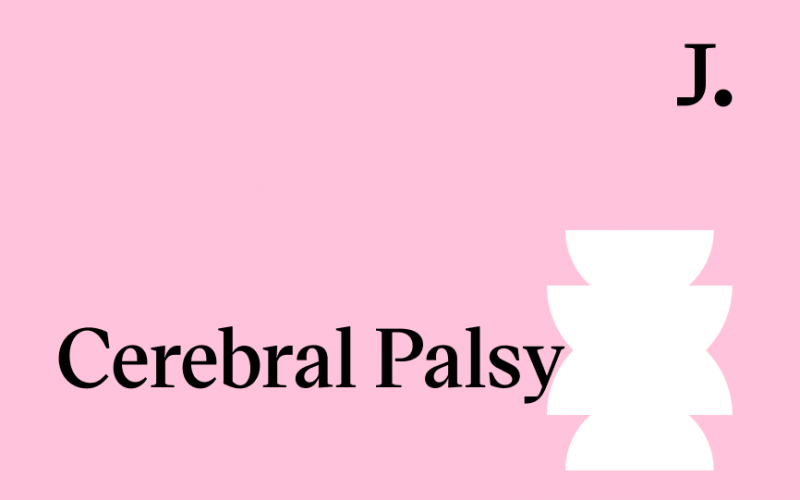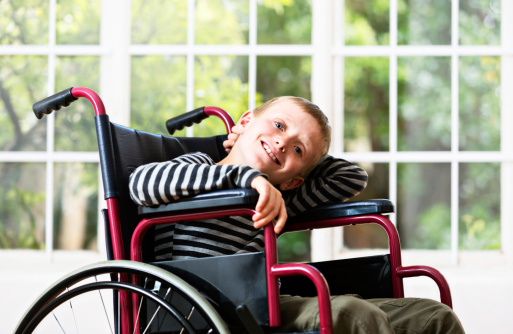The diagnosis of cerebral palsy and the prognosis and treatment then offered by your medical professional will vary greatly individual by individual. For example, some cases classified and treated as ‘severe’ when first diagnosed, may become reclassified as ‘mild’ or moderate’ with growth and the proper therapies to address the condition. Therefore the prognosis can change over time.
Cerebral Palsy is caused by abnormal brain development or a birth injury. Genetics or actions taken during pregnancy, labor, or delivery can cause a child to develop cerebral palsy, and the prognosis of such a condition can vary greatly between each child.
Prognosis of Cerebral Palsy Starts with Diagnosis
While doctors can use brain imaging tests – such as an X-ray, computed tomography (CT scan), or magnetic resonance imaging (MRI) – an electroencephalogram (EEG), genetic testing, or metabolic testing to diagnose cerebral palsy, developmental evaluations may also be conducted to make a cerebral palsy diagnosis. A developmental evaluation typically examines a child’s motor skills, ability to meet developmental milestones, posture, and more. A misdiagnosis or delayed diagnosis can be detrimental to the prognosis of cerebral palsy.
As the most common childhood motor disability, early diagnosis of cerebral palsy and intervention are key. The American Academy of Pediatrics clinical report “Motor Delays: Early Identification and Evaluation” states how early diagnosis prompts developmental interventions and diagnostic assessments that are key in the prognosis of cerebral palsy. Developmental screening at nine, 18, 30, and even 48-month well-child visits can help determine healthy neurological, bone, and muscle growth.
Once a child is monitored and screened for different types of cerebral palsy, which includes the brain, nerve, and muscle testing, as well as magnetic resonance imaging (MRI), computerized tomography (CT), and Electroencephalogram (EEG), it will be easier to determine the prognosis and long-term treatment plan for the condition. While monitoring and screening for cerebral palsy, physicians will also prescribe blood tests to detect possible genetic reasons for the condition.
What to Expect from the Prognosis of Cerebral Palsy
Identifying the prognosis of cerebral palsy begins with identifying the type of condition a child has. For example, prognoses differ between spastic, ataxic, dyskinetic, hypotonic, and mixed cerebral palsy. This is because each type affects the child differently, especially when it comes to lifespan. However, with the correct support medical, and care, people with CP can live a full life expectancy.
Symptoms of cerebral palsy that arise during milestone years help determine the diagnosis and prognosis of this condition, as well as the individual’s life expectancy. In addition, better mobility, self-feeding ability, seizure reduction, and respiratory function can all help increase the life span of a child with cerebral palsy.
Furthermore, co-existing conditions of cerebral palsy, such as epilepsy, should be monitored and treated according to severity. Since seizures can cause abnormal and low oxygen levels in the brain, keeping a child with cerebral palsy on medication that helps reduce convulsions is essential to improving their prognosis.
A 2012 American Academy of Pediatrics report revealed common prognoses for children with cerebral palsy. These statistics include:
- Three out of four were in pain
- One in three could not walk
- One in three had a hip displacement
- One in four could not talk
- One in four had epilepsy
- One in four had a behavioral disorder
- One in four had bladder control problems
- One in five had a sleep disorder
- One in five dribbled
- One in 10 was blind
- One in 15 was tube-fed
- One in 25 was deaf
The prognosis of cerebral palsy indicates how independent a child will likely be. If their condition is severe, they will likely be more dependent on assistive devices and caregivers. If their condition is less severe, they will likely be more self-reliant.
Improving Your Child’s Quality of Life
Medical professionals can help improve the quality of life of any child with cerebral palsy. Motor and intellectual impairments are the two main factors that affect the prognosis of a child’s cerebral palsy. However, through occupational, physical, and speech therapy, a child with this condition has a better opportunity to grow strong, become self-reliant, and lead a happy and fulfilled life.
Some ways to improve the quality of life and independence of a child with cerebral palsy include having medical professionals assist in pain management, muscular mobility, proper diet, and improving speech and communication through therapy. Another way to improve quality of life and independence is to engage children socially with their peers.
Making peer interaction a priority for children with cerebral palsy can be one of the most positive ways to maintain growth and development and improve their prognosis. Some ways to do this include getting your child into community involvement, a range of social interactions, having family support, and helping them like any other child to cultivate interests and grow into happy adults who contribute to our society.
Work with Justpoint after a Cerebral Palsy Diagnosis
Finding evidence of malpractice after a cerebral palsy diagnosis is what Justpoint does best. Here at Justpoint, our network of top attorneys help families determine whether medical malpractice compensation is possible in their situations. Together, our team can help you obtain all medical records needed to identify instances of medical negligence and connect you with the legal resources necessary for you to receive fair and reasonable compensation if your child was diagnosed with cerebral palsy after medical malpractice.
However, timing is essential when pursuing a cerebral palsy lawsuit, which is why our team matches you with the attorney best suited to your case. Since each state imposes different filing deadlines on medical malpractice lawsuits, families are advised to reach out to Justpoint as soon as possible to determine whether they qualify to have their case reviewed by a lawyer. Reach out to Justpoint today to learn more about whether your child’s cerebral palsy diagnosis entitles your family to compensation.












